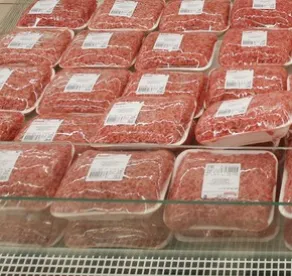You clearly know the difference between the meat and vegetables on your plate, right? As society has redefined its views on meat and protein intake, however, you may not be so sure.
Plant based proteins have quickly become the food industry’s most popular new addition. With protein now being processed from non-animal sources, the word “meat” is now at the center of a hotly contested legal debate. Given the ripeness for litigation, the U.S. Department of Agriculture likely will be forced to provide guidance to manufacturers and consumers regarding the definition of the word “meat” and may look to place limits on how the word may be used on product labels.
What is Plant Protein?
Plant based protein is exactly what it sounds like—food rich in protein made from 100% plant based ingredients such as peas, soy, and other all-natural seasonings. Plant based proteins do not contain any animal products of any kind. Many plant based protein brands are designed to look and taste like meat products that we are familiar with. They are typically made in science labs through “a proprietary system that applies heating, cooling, and pressure to align plant-proteins in the same fibrous structures that you’d find in animal proteins.”
The leading brands charging this plant protein revolution include Beyond Meat and The Impossible Burger, among others. These brands have perfected how to master the precise taste of meat without the negative health implications and environmental hazards, so much so that they are often confused for traditional meat products.
A Plant Protein Planet?
Plant-based proteins have sky rocketed in popularity as consumers have become increasingly concerned with living a healthier lifestyle, animal welfare, environmental benefits, social responsibility and economic considerations. In fact,
The global plant based protein market is predicted to expand to 10,892.3 million USD by 2022, accompanied by a CAGR of 6.7% throughout 2017 through 2022.
Indeed, Beyond Meat and the Impossible Burger brands are gaining mainstream traction, being sold in places like Disney World, Target, TGI Fridays, Kroger, and Whole Foods. Celebrity influencers have only added to this shift towards a healthier “meat” product, as Leonardo DiCaprio is a proud investor in Beyond Meat.
So Who Has the Beef?
In February 2018, the Cattlemen’s Association filed a petition with the U.S. Department of Agriculture to “prevent products from being labeled with the words ‘beef’ and ‘meat’ unless they are made from a slaughtered animal.” The Cattlemen’s Association argues that using the words “meat” or “beef” on packaging is misleading to consumers when they are sold products that look like “meat” or “beef” but are actually made with plant based protein.
Supporters of the plant protein craze counter that consumers are more than capable of distinguishing between a beef made with animal product and beef made with plant based protein–especially when the ingredients omit any references to animal products.
Who’s With Them?
With meat being a $67.56 billion industry in the United States, one would expect Big Meat to push back hard on its unlikely competitor. But the Cattlemen Association may not have as many allies as one would expect.
Indeed, rather than fighting the plant based protein industry, many meat companies have chosen to embrace it. Both Tyson Foods, the largest US meat processor, and Cargill, the largest US private agricultural company, have recently invested in plant based protein companies banking on their success. With category leaders taking these steps to hedge against lost market share, other major manufacturers are likely to follow suit.
Sound Familiar?
In 2017, 25 bipartisan members of Congress filed a petition to the Food and Drug Administration arguing that milk made from soybeans, almond, or rice should not be labeled as milk. They urged that plant-based milk companies should use a different name so as to not deceive consumers. This came on the heels of a 40% drop in milk prices, as plant based milk products have jumped in popularity. As of September of 2017, the FDA announced that they had not yet reached a decision.
Trends of the Future
Both “milk” and “meat” petitions demonstrate that change to the status quo of the food industry spurs controversy. The Cattlemen’s Association petition will prompt an inevitable uptick in litigation. “Meat” and “beef” will be a new area of focus for government regulators, as plaintiffs lawyers look for fertile ground for civil class action litigation.
The legal battles will also extend beyond deceptive labeling issues. Jessica Almy, policy director at Good Food Institute believes that this petition may have First Amendment implications because it asks the government to regulate the type of commercial speech allowed on products outside of the FDA requirements for nutrition labeling.
All things considered, the plant based protein industry may welcome the attention. Ethan Brown, founder of Beyond Meat, believes the Cattlemen’s Association petition will help his business by starting the national dialogue and increasing consumer awareness of his product and its health benefits.




 />i
/>i
